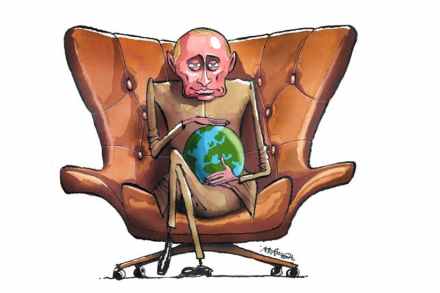Russia’s invasion of Ukraine: what we know so far
Vladimir Putin finally made his move overnight. In a spontaneous address to the Russian people in the early hours of the morning, Putin declared the beginning of a special military operation to demilitarise Ukraine. The missiles started flying almost immediately. Based on the opening hours, it’s safe to say that the Russian military operation is far larger, more coordinated and geographically dispersed than many assumed previously. Cruise missiles and artillery fire landed on targets in at least seven Ukrainian cities simultaneously, from Kharkiv and Odessa to the capital, Kiev. Matthew Chance, a CNN international correspondent, had to change into his flak jacket and helmet during the middle of his broadcast, with





















